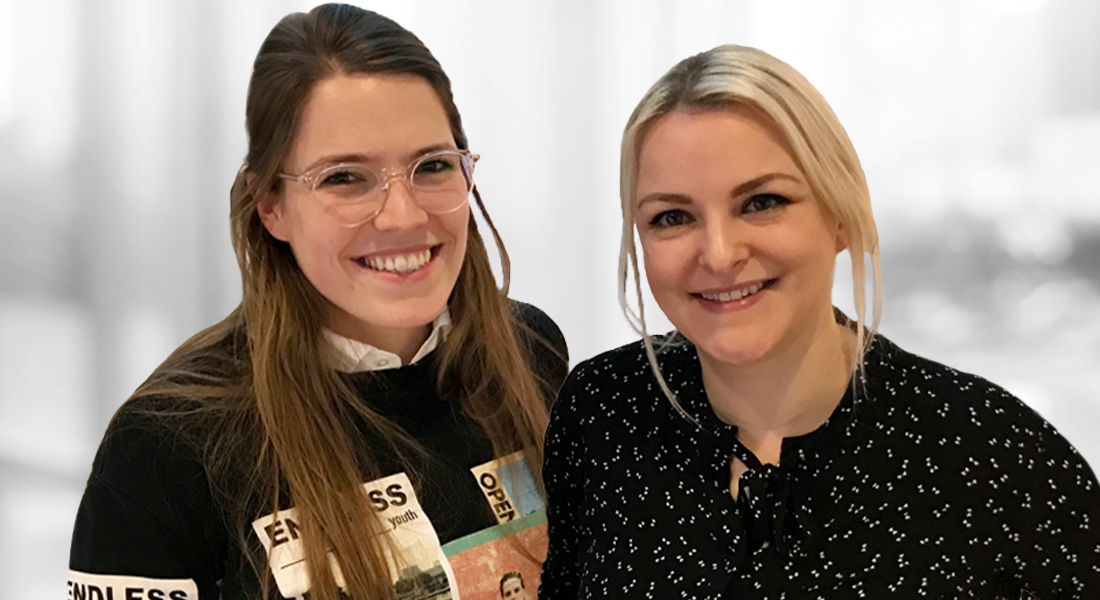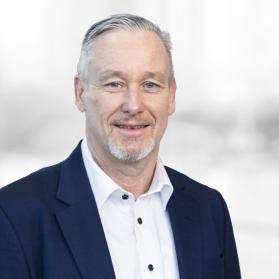Stephanie Tönjes (Deutsche Telekom) and Jeanne Kindermann (Kienbaum Consultants) are experienced communicators who focus on social media. As such, they have been involved in the future of corporate communications for many years and belong to the generation of the wild young ones who repeatedly and publicly question convention and strike out on new paths. But the two have something else in common: both are ambassadors of Global Digital Women (GDW), an international network of women influencers in the digital sector, who have successfully established the chapter in North Rhine-Westphalia. Our series of #COMRebels interviews now continues with the questions we asked them and the fascinating answers we received.
Steffi, Jeanne, we are delighted to have the opportunity to talk to you today about our common passion: corporate communications. You are both experts for social media who play a major role in the shaping of this function in your companies. Moreover, you are the faces of the NRW chapter of Global Digital Women (GDW). Are women the better communicators?
Steffi: There is no difference for me; it is simply a matter of the type of personality. Communicators, whether men or women, should be passionate about their job, curious about topics and people, and open to new trends and channels of all types. After all, we don’t say that men or women make the better doctors. Stereotypes may claim that women are more likely to have a strong sense of empathy. But a lot has changed here, and you must always look behind the façade as well.
Jeanne: I would second that. Good communicators are empathetic and sensitive — and there are both women and men who have these characteristics. What is important is having fun and finding joy in exploring new paths.
Nevertheless, you have decided to assume the role of ambassadors for Global Digital Women (GDW) in NRW. What motivated you to do this?
Jeanne: The desire to bring about change. We originally met on Twitter, and we got together for a personal meeting with Tijen at the re:publica two years ago. A few months later, Tijen contacted us to ask if we would be interested in establishing the network in NRW.
I was fascinated by the combination of female and digital because I had long since been intensely involved with digital media. Women who drive forward digitalization in their companies are GDW’s target group, and we want to offer them an opportunity to interconnect with one another. This is a lot of fun and is highly rewarding as well; after barely one year, the average registrations for our monthly after-work events have risen from the initial 60 to 180, and more than 1,000 people have come together. Lots of new contacts and cooperation activities have resulted, and many women have become visible for their accomplishments. Our strong presence in social media has certainly been an important factor as well.
Steffi: Exactly! We want to offer to women a platform where they become visible. It is still true, even today, that panels at conferences such as re:publica or Online Marketing Rockstars (OMR) are made up mostly of men. GDW wants to encourage women to step into the limelight, to present their capabilities to the outside world, and to share them with others. There are a lot of women, especially in communications, who hold positions of experts or executives and who have outstanding qualifications, but who are overlooked in daily work. We want to create a stage and encourage women to step out onto it.
The communications sector, as is well known, is firmly in the hands of women; in communications agencies, for instance, women represent over 60% of the workforce. Yet only 12% of female communications experts are executives. What do you believe to be the reasons for this?
Steffi: That is true, unfortunately. That is why we need role models who stand up and say to us: “If I can do this, then you can do it!” We want women to share their personal success stories in our networks, and we offer them the opportunity to do so within a defined space, but a space that is not a closed shop. Men are welcome to join in; after all, diversity is one of the major goals.
Would you say that men are traditionally better at networking and are found more frequently in executive positions because they foster their networks more consistently and advance their careers thanks to “old boys’ networks”?
Jeanne: I really do think we can learn something from men in this respect. Men meet after work for a beer and decide in these informal settings about careers, kicking the ball back and forth to one another, while young mothers do not take this time, instead hurrying home to their children. Or they work longer and miss out on the networking because they believe that their work alone will be sufficient to advance their careers.
Steffi: Many women simply hide their light under a bushel. The speakers at our events are often asked how they succeeded in reaching their positions. Their answers are frequently along the lines of “I was lucky” or “I was at the right place at the right time.” This modesty is uncalled for because every one of them has undoubtedly worked very hard to reach her present position. We communicators are especially aware that you must also sell your achievements.
Steffi, “Turning People into Brands” is one of the guiding principles in your LinkedIn profile. What does that mean exactly, and is turning employees into brands also an objective at Deutsche Telekom?
Steffi: When I think about my own behavior as a consumer, I can say that I really don’t display loyalty to any corporate brand. I am always interested in direct contact with people. That is also why it is so important that we carefully consider how we want people to perceive us, what we want to stand for, and what channels we can use to express this best. We already have a situation on today’s labor market that potential employers will start off by “scanning” you in digital media and obtain an initial impression of you there, so at Deutsche Telekom we encourage our employees to communicate directly and to become a part of what my boss so wonderfully calls the “largest communications department in the world.”
Jeanne: At Kienbaum, we also try to motivate our consultants to participate in communication on social media, but not as an obligatory program. The focus of our corporate communications should in the future shift more and more to people and away from the corporate brand. You can reach decision-makers more quickly, especially in the B2B environment, through your personal expertise rather than with anonymous corporate messages. We offer in-house training and webinars with this in mind and teach our colleagues to act themselves as authors and to secure a position for themselves and their topics. But this demands trust from us, the communicators, and the willingness to allow colleagues the freedom to follow their own paths.
Isn’t it a contradiction for communicators simultaneously to be a successful personal brand AND to communicate for a corporate brand? How do you reconcile that?
Steffi: I have never given a thought to being personally active on social media with the aim of representing my company. My objective has always been to represent myself and my topics and to find people with the same interests. I present Telekom as well, of course, because it is a major component of my life. You cannot raise people to the level of corporate influencers because the focus is always on people. If the company resonates as well, then that’s good, but it is not a strategic goal.
What does this mean for the future of corporate communications? If, ideally, many employees themselves communicate and co-transport corporate topics, what will the role of communications be?
Jeanne: I don’t believe it will be possible to imagine a company without corporate communications, even in the future. For me, this is one of the core parts of the company, an information hub where all topics and information come together, are curated, and then distributed to the various target groups. But in future we will be less the gatekeepers and more the enablers who provide information to employees that they can utilize themselves for their own stories as well. Communicators will presumably work at greater proximity to operating business, participate in projects, and contribute their communications expertise directly.
Steffi: Corporate communications will never be done away with. I see us as a kind of translator. The management board announces the strategy, and we are the ones who describe it to the outside world in understandable form, the ones who write the stories and pass them on as guiding motifs to the employees, so that we tell one story with many voices.
To what extent will corporate communications itself influence or shape strategy? The topic of listening plays a highly significant role in social media in particular, and communications is perhaps sometimes much closer to customers than someone who develops the products. How do you see this?
Steffi: We can certainly assume an important translator role in the direction of company management as well. We see what our communities want from us and can spark ideas for our strategic positioning and the structuring of our stories.
Does this perhaps mean as well that communicators will in the future perhaps require more extensive technical skills and should have training in data analytics?
Jeanne: That is correct; we will have to exploit the potential of AI and big data more extensively, even though the human component will continue to play a huge role. But I am also on dangerous ground if I rely on numbers alone. For instance, the analysis of tweets with especially great reach does not yet tell us whether the desired message has really been communicated. Perhaps a lot of people have read my message, but have they understood it? To find that out, I have to analyze the feedback, i.e., the comments and direct dialog. And the question is whether machines are able to carry out this qualitative assessment.
Steffi: Before we allow machines to act, we must first give serious thought to what we really want to achieve. The constant in the vision for social channels of Deutsche Telekom is meaningful interaction. We must raise the level of dialog and engage our communities. Machines can provide important assistance here, and we should not be afraid of them.
Jeanne: In no small part because we frequently use artificial intelligence today without being aware of it.
Thank you, Jeanne, Steffi, for these insights into your work and your assessments about the future of corporate communications. But we can’t let you go without our final question: What two apps are essential for the daily work of the communicators of today?
Jeanne: Twitter and LinkedIn. Two different channels on which communicators must be visible and where I obtain all the information I require for my work.
Steffi: I’ll go along with that. The relevance of Twitter may be declining, but for the communications sector and for my personal network, I can’t do without it.
And in your personal lives?
Jeanne: Instagram!
Steffi: Twitter and emails for the fast overview. Then Instagram
#COMRebels
In the age of digital change, corporate communication is no longer what it used to be, either: familiar ways of disseminating information are becoming less important, smooth corporate news can no longer get through, and the 'everyone with everyone dialogue via social media and communities is causing traditional communication teams to lose control over the dissemination of the message. On the other hand, chatbots and artificial intelligence provide completely new access to the needs of customers, employees and applicants, but they also bring about fundamental technical and cultural changes. Long live #FutureCOM.
Beautiful new world of unlimited possibilities?
What does it look like now, the (digitized) corporate communication of the future? How, where and by whom will the exchange of information take place? And how do we shape the interaction between man and machine?
We are looking for answers...
... and talk to the #COMRebels, the courageous, young, wild, digital and experimental representatives of a species whose work plays a key role in transforming your business into a successful player in the digital age






